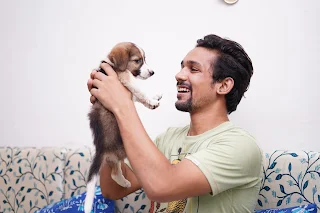I have always had a dog, sometimes without any parental permission. When my mother told me I could not have a dog, I found a puppy and built her a home in a vacant lot and went there everyday before and after school to feed and play with her. I had her for almost a year before my parents found out and called animal control to come get her. She was such a dear and I was mad for months and months. She was well cared for and well fed, so I did not see the reason for them to pick her up. Of course, I was about 8 at the time.
Anyway, I love dogs. I also love cats, birds, lizards, insects, mice, rats, hedgehogs, hamsters, guinea pigs, llamas, burros, horses, etc. I think you get the drift. I love animals, period. I think animals are way nicer than most humans I have been exposed to in my life. With an animal, what you see is what you get. They do not play games about who they are.
So, how does all this relate to the title of this blog? I'll tell you. I have been thinking quite a bit today about all the dogs in the Ukraine and Turkey that are at risk of either starving or being killed. I feel very sad by that thought. I do understand that people will put people first in emergency situations, but I don't necessarily agree with that idea. I think all life is important and has value.
On that note, let's talk about dogs that have been abused, mistreated, or worse and how they were still able to be loving and friendly with humans; even to the point of rescuing those humans. If you search Google, you will find numerous articles and stories about such dogs that proved themselves to be heroes. Here are a few such articles:
- https://www.rd.com/list/shelter-dogs-who-saved-lives/
- https://www.newsweek.com/21-times-dogs-saved-owners-lives-proving-mans-best-friend-1570567
- https://iheartdogs.com/12-incredible-stories-about-dogs-saving-humans-lives/
- https://www.usatoday.com/story/news/nation/2023/02/28/dog-saves-baby-fire-detroit/11364181002/?utm_source=usatoday-EveryonesTalking&utm_medium=email&utm_campaign=baseline&utm_term=hero&utm_content=USAT-8872UT-E-Everyones-Talking






.jpg)
.jpg)
.jpg)
.jpg)
.jpg)



.jpg)
.jpg)

.jpg)
.jpg)

















